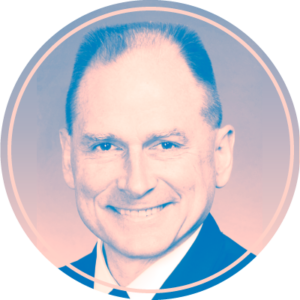 Every week, our Meet Our Advocates series showcases the talents and passion of one of our doctors and finds out, in their own words, what inspires them to be physician-advocates. William Leininger, MD, FACOG (CAPT, MC, USN) is an incoming member of the Leadership Training Academy Class of 2018.
Every week, our Meet Our Advocates series showcases the talents and passion of one of our doctors and finds out, in their own words, what inspires them to be physician-advocates. William Leininger, MD, FACOG (CAPT, MC, USN) is an incoming member of the Leadership Training Academy Class of 2018.
Where are you from?
I was born in Houston, TX, and grew up in Montgomery County, MD, just outside of Washington, DC. After medical school, I’ve been stationed primarily in San Diego since 1992, and during my Navy career, I’ve served in Iceland, the Persian Gulf, Somalia, and Guatemala, as well as various U.S. locations.
What’s your specialty or area of expertise?
Ob/Gyn. Beyond providing comprehensive women’s health care, I’m particularly interested in education, ethics, policy development, and advocacy
What first inspired you to become a doctor?
When I was deciding what I wanted to do with my life, I knew it would involve the sciences, in a setting of public service, and include my direct participation (“laying on of hands”). Volunteer activities with the Boy Scouts, the American Red Cross, and as an EMT confirmed for me that being a doctor would be a good fit for my career goals. When I started medical school, I thought I would pursue a specialty like orthopedic or cardiovascular surgery. But, during my first year of training, I got see deliveries, cesarean sections, preventive care, and so many other aspects of obstetrics and gynecology. It was only a one month rotation, but it turned to be a great match for me. Over the years, there have been ups and downs in my professional life, but my enthusiasm for women’s health care has never waned.
What story about one of your patients most sticks with you?
Mary (a pseudonym) was a 23-year-old who was newly pregnant for the first time. The pregnancy was unexpected, but welcomed. I initially met her on a Monday, when she was seven weeks along and had started spotting over the preceding weekend. So, she had had two days to worry about what was happening, and what she had done to cause it. My ultrasound confirmed that she was having a miscarriage. I gave her several minutes to get cleaned up and dressed, and to be alone with her husband. When I returned, I briefly explained the medical criteria used to make this heartbreaking diagnosis, and then immediately described all the possible things that do NOT cause miscarriages – too much/too little exercise/eating/sleep; having had a recent argument; having had an uncomplicated STI/abortion; being on the pill; thinking unkind thoughts about someone; being punished for past behavior; etc. As I went through this list, she abruptly starting crying – it was clear that she had enormous guilt that she had done something to hurt her baby, and was relieved that it wasn’t her fault.
This emblematic patient encounter always reminds me that our patients are whole people with varied life experiences, and that, while I couldn’t do any anything to heal her pregnancy, Mary still needed my care. Giving a patient medically accurate information about her medical condition (in this a case, a miscarriage) in the context of her personal circumstances is essential for her recovery and life long well-being.
What current policy issue especially motivates you to be an advocate?
Ensuring women’s health care access. The reproductive health care issues of contraception, abortion, and maternity care lead the headlines and need a robust focus. Concurrently, other areas for concern include prevention/detection/treatment of cardiovascular disease and cancer; inclusion of female subjects in research protocols; and recognition of economic and social forces on women’s health (housing, child care, transportation, etc.).
Who is your social justice hero?
C. Everett Koop, 13th Surgeon General of the United States. He’s a role model for me in two particular ways. First, he investigated issues, set priorities, and recommended policies based on the best science available, regardless of his personal views or the political influences surrounding the topic. Second, he expanded the role of public health from focused disease prevention and treatment to also considering the economic and social forces (poverty, violence, stigmatization) that affect the public’s health.